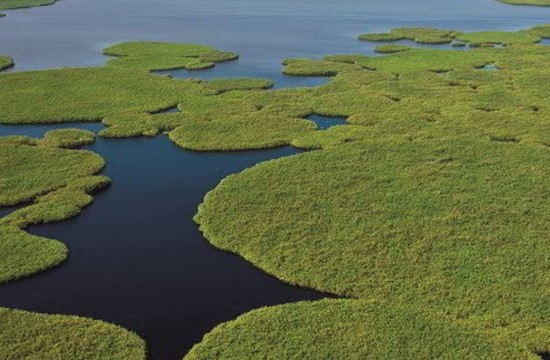Leading think tank urges halt in Nile River dredging project
June 17, 2022 (JUBA) – There is need for wider consultations and conduct of an independent feasibility study before dredging of the Nile River tributaries can occur in South Sudan, a leading think tank recommended.
The recommendation are contained in a policy brief from Sudd Institute, a Juba-based research entity. The policy brief cited mixed reactions to a plan to dredge the tributaries of the Nile to reduce the flood risks in the countries.
The mixed reactions are exacerbated by contradictions by government officials, suggesting there is lack of consensus in government on the project.
For instance, the Ministry of Environment and Forestry described as “illegal” the dredging of the Nile River tributary, yet officials at the Water Resources and Irrigation ministry insisted the project would reduce floods in Unity State.
The Sudd Institute’s policy brief noted that such contradictions clearly show divisions between the public and government institutions over the project.
“To resolve this controversy, we argue that the government should suspend the project and commission credible feasibility studies focusing on environmental and social impacts to generate evidence-based solutions to flood and other climate change-induced shocks and stresses,” it stated.
Proponents of the Nile River tributary dredging argue that the project enable people to return to their original areas and resume normal livelihoods, removing sediments causing blockage navigation for trade and movement of goods and services through the river, including transportation of oil products and other commodities from Unity State to the market.
Those in support of the project have not factored in its negative impacts.
The Sudd Institute’s brief recommends building of dikes in the flood-prone areas, with some auxiliary structures and facilities attached to dikes such as pump stations, drainage canals, and drainage reservoirs.
It further advocates for relocating and resettling flood victims in elevated areas, requiring assessment to identify suitability and other possible risks, including security risks.
“If the next course of action is to dredge blocked or silted sections of rivers or build dams upstream or dikes or resettle populations in flood-prone areas to high grounds or both or a selection of those, feasibility studies and ESIA [Environmental Social Impact Assessment] must then be conducted on each of the recommended interventions and a consulting firm of international reputation must be procured through transparent public bidding to conduct these feasibility studies,” it further recommended.
The came days after a concerned group of citizens petitioned lawmakers over the illegal exploitation of the Sudd Wetlands and its ecosystems.
The group demanded that the current illegal dredging exercise that was illegally signed by the Ministry of Water Resources and Irrigation with Egypt be immediately suspended until a homegrown solution has been found.
These solutions, they said, must be informed by science with the participation of the general public and communities affected by floods.
“[We] demand that the National Assembly summon, amongst others, the Minister of Water Resources and Irrigation, the Minister of Foreign Affairs and International Cooperation, the Minister of the Environment and Forestry, and the Governor of Unity State to answer questions about the subject matter,” partly says the petition extended to Sudan Tribune on Tuesday.
The group also demanded that the national assembly forms a fact-finding mission to Unity State to ascertain that the equipment is not being assembled to be used for any illegal dredging of any river in South Sudan.
The Sudd, a vast land formed by the White Nile’s Bahr al-Cabal section, is one of the world’s largest freshwater wetland in the entire Nile River basin.
(ST)

